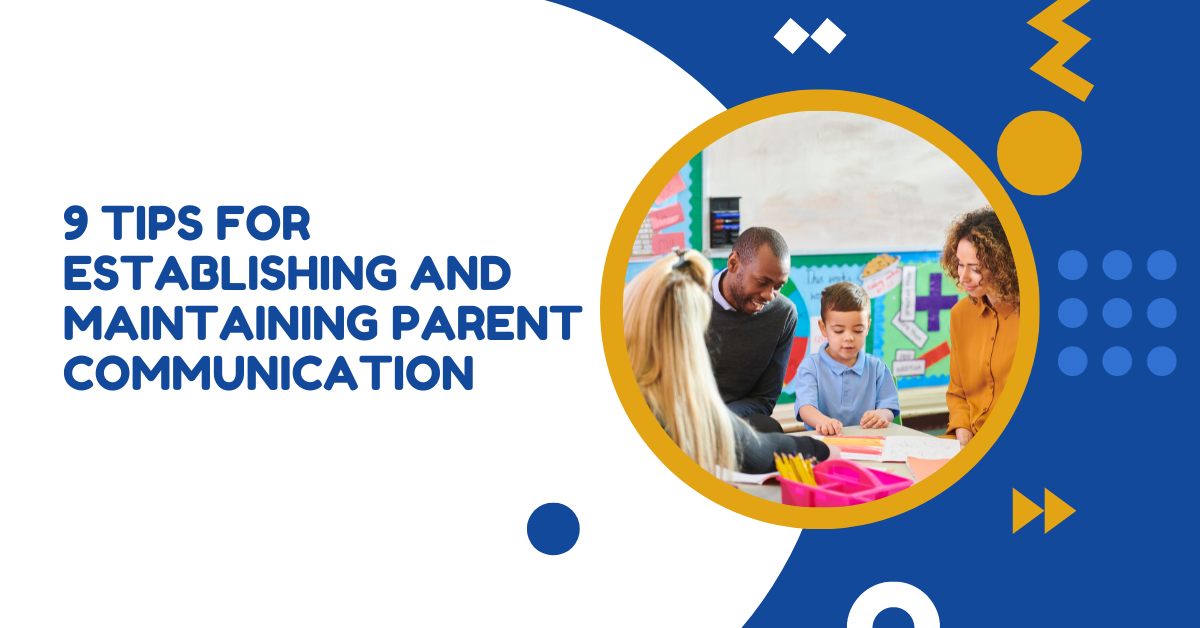

Essential Bulletin for Educators
January 2024

Hello, Pennsylvania Educators!
This bulletin will provide you with tools and strategies for classroom use and professional development opportunities.
If you have questions or content recommendations, email us at bsebulletin@pattankop.net.
With appreciation for all you do,
The Pennsylvania BSE and PaTTAN Staff
TOOLS FOR TEACHERS
3 Quick Tips for Student Interactions
9 Tips for Communicating with Parents
Parent communication is a critical aspect of a teacher’s role.
It fosters collaboration, builds relationships, and ensures shared goals for student growth. Here are some specific strategies and tips to help you with parent communication.
TIMELY OPPORTUNITIES
Let's Make a Difference - Together!
It’s Not Too Late to Apply for a Mentor
Have you considered applying for a special education mentor, but just haven’t done so yet? Don’t delay! Opportunities are still available to get matched with a mentor during the second semester of the 2023-2024 school year through the APR Mentoring Project.
Why Become Part of the APR Mentoring Project?
The APR Mentoring Project is a great fit for novice special education teachers, special education leaders, school psychologists, teachers of the deaf, and teachers of the visually impaired who want to learn from professionals who have experience in the same positions. Monthly meetings, based on your availability, provide you with strategic and ongoing guidance, feedback, and support to move your teaching/leadership practices forward.
What Qualifies You to be Matched with a Mentor?
Mentees are expected to:
- Currently hold a position as a Pennsylvania special education teacher, teacher of the deaf, teacher of the visually impaired, special education administrator, or school psychologist with three or less years of experience.
- Have the endorsement from their direct supervisor.
Upcoming Mentoring Networking Session at the PDE Conference
Mentors and Mentees will have the opportunity to meet in-person at the Annual PDE Conference on Wednesday, February 28, 2024, at the Hershey Lodge & Convention Center for networking and collaboration. Attendance is encouraged, but not mandatory. Conference registration and one night lodging will be paid for by the APR Mentoring Project for mentors and mentees attending the PDE conference.
Minimizing Coercive Interactions & Maximizing Relationships: Classroom Tools
Emotional support teachers are faced with numerous responsibilities and numerous challenges. Some of the biggest challenges are simply controlling the problem behavior of students, which all too often get in the way of other educational challenges.
This session will focus on evidence-based strategies for managing problem behavior that rely on minimizing coercive interactions and minimizing attention for problem behavior (not ignoring the student), while focusing attention on even the smallest appropriate behavior. The presenter will also discuss how to prompt/motivate students while minimizing the chances of agitating them. Teachers will learn how to deny reinforcers (saying “no” gracefully while maintaining your relationship) and three ways that we can “control” others (which is how we are all controlled). Opportunities to discuss teaching protocols and classroom systems will also be provided.
NEWS YOU CAN USE
PA's Disability Inclusive Curriculum Pilot Program
RESOURCES
Create Your Own Puzzle!
Check Out the Campus Disability Resource (CeDaR) Database
Here you can find disability-related information from degree-granting colleges and universities across the United States.
A Comprehensive Checklist for Classroom Accommodations
Does your student:
- understand the information, but have difficulty reading the required materials?
- have difficulty following instructions?
- need help organizing materials?
- have limited writing abilities?
This checklist will assist you in providing the appropriate supports.
The mission of the Pennsylvania Training and Technical Assistance Network (PaTTAN) is to support the efforts and initiatives of the Bureau of Special Education, and to build the capacity of local educational agencies to serve students who receive special education services.










